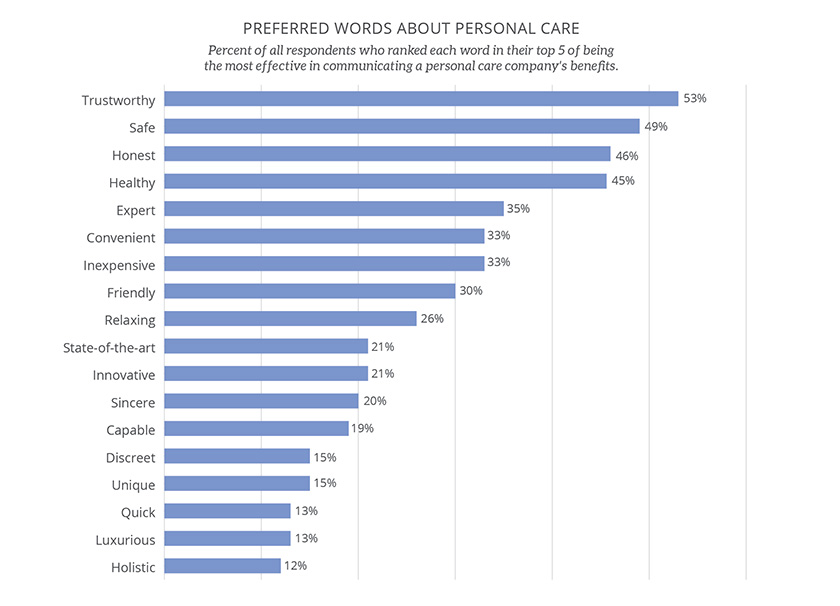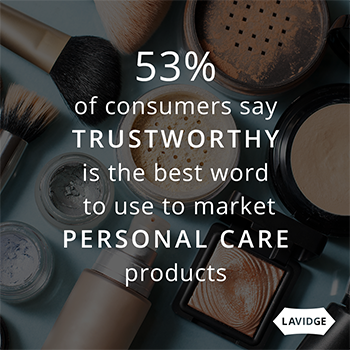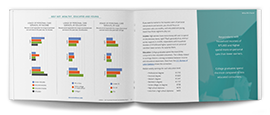Sign up for our LAVY email
and get our bi-monthly newsletter.
This article is a brief abstract of our exclusive study that takes the guesswork
out of retail services advertising and marketing
There’s not much left on the bone after we pay for necessities.
Housing, transportation, food, insurance and healthcare consume 81.5% of our take-home pay. The rest is mostly spent on discretionary items, such as entertainment and clothing. Lastly, when we have the time and the inclination, we’ll splurge on ourselves—for retail services such as fitness clubs, hair and nail salons, massage clinics, wellness spas, beauty products and more.
Dubbed retail services, such items consume only 1.2% of the typical U.S. household's spending, or just $683 annually. That may not sound like much, but with 126 million households in the U.S., that’s $86 billion spent on nonessential products and services.
To assist the retail services industry with crafting effective advertising, marketing and public relations messages to attract customers, LAVIDGE recently fielded a comprehensive consumer survey. Here’s a preview of a fascinating insight from the report.

 The only physical contact that occurs when buying a car might be a handshake. But for many retail services—hair and nail salons, massage clinics and wellness spas—physical touch is an integral part of what consumers buy. This intimacy is unique in our economy, and that’s probably why respondents place so much emphasis on factors that have little to do with the nature or quality of the purchased services.
The only physical contact that occurs when buying a car might be a handshake. But for many retail services—hair and nail salons, massage clinics and wellness spas—physical touch is an integral part of what consumers buy. This intimacy is unique in our economy, and that’s probably why respondents place so much emphasis on factors that have little to do with the nature or quality of the purchased services.
We asked respondents throughout the Southwest to consider 18 different words as being the most effective in communicating a retail service company’s benefits. Their top three choices speak in a unifying voice: trustworthy topped the survey at 53%, followed closely by safe (49%) and honest (46%). Healthy was right behind at 45%.
We certainly have trust issues. A 2016 Gallup poll indicates that Americans have historically low levels of confidence in 14 major institutions. At only 9%, we trust Congress the least. But we also have little faith in big business (18%), newspapers (20%), television news (21%) and the criminal justice system (23%). Organized labor, banks and public schools also lack credibility.
But trust in advertising is on the upswing. A March 2017 YouGov survey found that 61% of consumers say they trust ads. That’s an 11% increase since 2014. Similarly, the same survey shows that 72% of people believe that the ads they “see, read and hear” are honest, a 16% increase.
 When it comes to our bodies, trust is paramount. When we get that squared away, we can move on to areas more closely related to product and service attributes, such as healthy (45%), expert (35%), and convenient (33%). The survey indicates that some consumers may not be very price sensitive regarding retail services—just a third of respondents chose inexpensive as one of their top words for advertising and marketing messages.
When it comes to our bodies, trust is paramount. When we get that squared away, we can move on to areas more closely related to product and service attributes, such as healthy (45%), expert (35%), and convenient (33%). The survey indicates that some consumers may not be very price sensitive regarding retail services—just a third of respondents chose inexpensive as one of their top words for advertising and marketing messages.
Recently, The Wall Street Journal cited data revealing that the typical gym member travels only four miles to get to their club. The lower the membership cost, the less we travel. But people seem willing to drive farther if their club is exclusive (i.e., expensive). Our survey doesn’t show convenience as a primary factor, probably because there is an abundance of retail service businesses in most neighborhoods; you don’t have to drive far to find a gym or salon.
Survey responders said...
“I want to feel that I am being taken care of and not just a dollar sign. Someone who is trustworthy is going to treat you better than someone who is in it just for the money.”
“If I am going to pay for a personal care service, I need to trust the person doing it.”
“The last thing people want in personal care is someone who doesn’t know what they’re doing. Whether the service is from a doctor or a hairdresser, it’s important that it be done in a competent, professional manner.”
“It is important to know that procedures are not only safe, but also healthy.”


This article is a brief abstract of our exclusive and authoritative study that takes the guesswork out of health, beauty and grooming retail services advertising and marketing. Rather than speculating about what will drive consumers to action, we've asked them.
Sign up for our LAVY email
and get our bi-monthly newsletter.